Film Update: An Act of Worship
POV caught up with An Act of Worship director and producer Nausheen Dadabhoy to provide a window into the making of her film and reflect on the journey since the cameras stopped rolling. The following are her words, lightly edited, for clarity and context.
How did you first get involved with the project? When did you know this story was going to be a documentary?
Sofian Khan, who is one of the producers on the film, and I watched the 2016 election together. It was soon after that I decided to develop this film, and I asked him to produce it. Part of why I wanted to make the film is because my sister had been an attorney at the Council on American Islamic Relations’ Los Angeles chapter. Seeing her work up-close, I felt that community organizers and activists would be really busy under the Trump administration, so this was an important moment to document. I never thought of this project as anything but a documentary, but at first I only wanted to make a short film. We did make a short, also called An Act of Worship, but we realized that this story needed to be a feature because it was much bigger than our current political moment and much bigger than the Trump administration.
What were the biggest surprises and/or challenges you encountered during the filmmaking process?
One of the biggest challenges was creating trust with the community. Cameras are linked to surveillance and have often been a source of trauma for our community, as has a lot of popular media. Taking a tool that has caused trauma and trying to make it a source of healing was tough. It was difficult enough to find community members who would welcome us into their homes, but to later find people who would share their family’s home videos was even more challenging. It required a lot of conversation and transparency in our process.
What informs your form and approach to documentary filmmaking? What and who are your biggest influences?
Raoul Peck had a really big influence on me while working on this film. I watched I Am Not Your Negro many times over the course of this production. I was also really inspired by the vérité storytelling and camerawork in Motherland. I don’t have a particular film or filmmaker that I go back to for every project, or a particular style that I’m trying to work in. Every project that I approach as a director or a DP requires its own language, and I like to delve into different types of media to find it. I read comics, I look at paintings, I read about the creative practice of other artists. This film took so long that I had to constantly find new inspiration.
What has happened with the protagonists since the film wrapped? If they’ve seen the film, what was their reaction?
All of our participants were involved with the film throughout post-production and saw the film before it was picture locked. All of our participants attended our world premiere at the Tribeca Film Festival. Aber Kawas came on board as our impact producer and was touring with me for October through November 2022 with the film. We had screenings in all the the major cities that we filmed in, and many of the people who were in the film through their audio interview or home videos were also present at the screenings. It was really incredible to share the film with so many people who helped us create it.
What do you hope your audiences will take away after watching the film? What is the most memorable response you’ve received from an audience?
Our impact campaign focused on Muslim-American communities, and it was wonderful to hear that people felt seen and felt like it was their story on the screen. The most surprising response was that people felt that watching the film was therapeutic for them. I didn’t expect that.
What are you working on now?
I’m trying to figure what happens next, but I know I’m interested in telling more stories about the Muslim-American experience.
Any additional resources you can share with our viewers?
The issues highlighted in the film like Muslim Ban, community surveillance programs, school bullying, etc. are all still impacting Muslim American communities. No Muslim Ban Ever is a great resource for up-to-date information on the ban. Muslim Abolitionist Futures is a collective of several organizations working to dismantle War on Terror policies. Muslim American children are bullied at twice the rate in the US as their non-Muslim counterparts. The Council on American Islamic Relations – California has more information in their bullying report.
Our film team will continue our community engagement campaign with screenings, healing workshops, narrative change workshops and workshops on building a community archive, you can find out how to get involved on our website.
An Act of Worship premiered on Monday, October 17th and is available to stream through January 16, 2023.
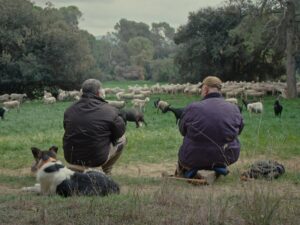 Film Review: Fauna
Film Review: Fauna 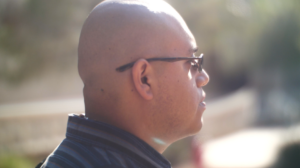 Film Update: unseen
Film Update: unseen 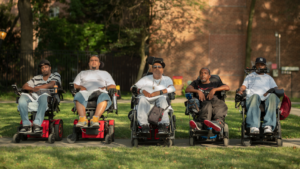 Film Update: Fire Through Dry Grass
Film Update: Fire Through Dry Grass 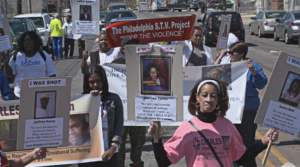 Film Update: Murders That Matter
Film Update: Murders That Matter 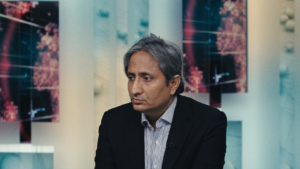 Film Update: While We Watched
Film Update: While We Watched  Film Update: Uýra: The Rising Forest
Film Update: Uýra: The Rising Forest 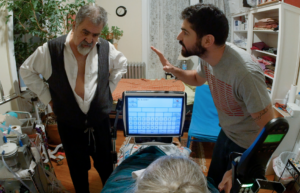 Film Update: Eat Your Catfish
Film Update: Eat Your Catfish